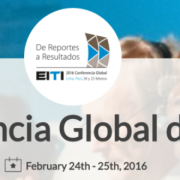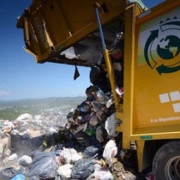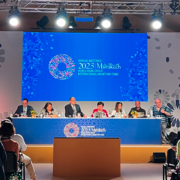Regional statement regarding the IDB presidential elections
Through a statement addressed to the Governors of the Inter-American Development Bank, civil society organizations, peasant communities, indigenous peoples and Afro-descendants and people with disabilities in Latin America and the Caribbean, we express our concern regarding the presidential elections of the Institution. In particular, we express our rejection of the decision of the United States government to present a North American candidate to preside over the Bank, and of the election process itself, which does not give rise to the participation of social organizations and communities.
“Below, we offer a google translate version of the original article in Spanish. This translation may not be accurate but serves as a general presentation of the article. For more accurate information, please switch to the Spanish version of the website. In addition, feel free to directly contact in English the person mentioned at the bottom of this article with regards to this topic”.
On September 12 and 13, the Inter-American Development Bank -BID- will elect a new president who will replace Luis Alberto Moreno, after 15 uninterrupted years of management. The elections will take place through an extraordinary meeting of the Board of Governors to be held virtually. Different countries in the region have nominated candidates, such as Argentina, which nominated Gustavo Béliz, and Costa Rica, Laura Chinchilla. However, what is causing concern in the current IDB presidential selection process is the nomination by the US of candidate Mauricio Claver Carone. This, in addition to going against the unwritten IDB rule that the Institution must be led by a Latin American representative, threatens the decision-making capacity of the Bank’s borrowing countries, given that the United States has the highest percentage of capital and votes within the Institution.
In a context marked by the crisis of multilateralism that the world is going through; the socio-ecological and climatic crisis that has a particularly serious impact on Latin America; the historical problems of inequity, inequality and poverty in the region; and the economic, social and health impacts and repercussions that the Covid-19 pandemic is generating, the transition in the presidency of the IDB is key for the future of the region.
Therefore, today more than ever the IDB requires a qualified leader who is capable of critically positioning himself with regard to the role that the Institution plays in the face of the complex panorama that the region is experiencing, and who is predisposed and capable of promoting a model different development. In this sense, the person appointed to the presidency of the IDB should necessarily meet a series of requirements that include, among others, the following:
- A clear and express commitment to multilateralism, at a time when the legitimacy of international institutions is being questioned and attacked;
- Extensive experience and knowledge of the reality of the countries of the region and the challenges they face in the current context;
- A clear commitment to transparency, accountability and the participation of communities, indigenous peoples and civil society in the actions of the Institution;
- Knowledge and experience in development agendas that reflect a commitment to the public interest, the protection and promotion of human rights, gender equality, the need to immediately face the effects of climate change and to bet on a model truly sustainable development focused on communities and indigenous peoples.
At the same time, the statement, to which more than 50 organizations joined, emphasizes that the election must go beyond voting and open spaces for dialogue between candidates and civil society and communities. After 15 uninterrupted years under the leadership of a presidency that impregnated particular characteristics, and in many cases questionable, the management and actions of the Bank, a unique opportunity is presented to learn more about the positions and proposals of the different candidates. facing the concerns and demands of communities and civil society; and in relation to the prevailing context in the region.
We hope that the IDB will rise to the current circumstances and take advantage of this opportunity to ensure that whoever becomes president of the Bank is truly the most qualified and appropriate person to lead it in the face of the complex moment the region is going through.
More information
- Statement by Civil Society organizations, peasant communities, Indigenous and Afro-descendant Peoples and people with disabilities in the face of the election of the new president of the Inter-American Development Bank (IDB)
- The end of a historical tradition in the presidency of the IDB? – Fundeps
Contact
Gonzalo Roza, gon.roza@fundeps.org






